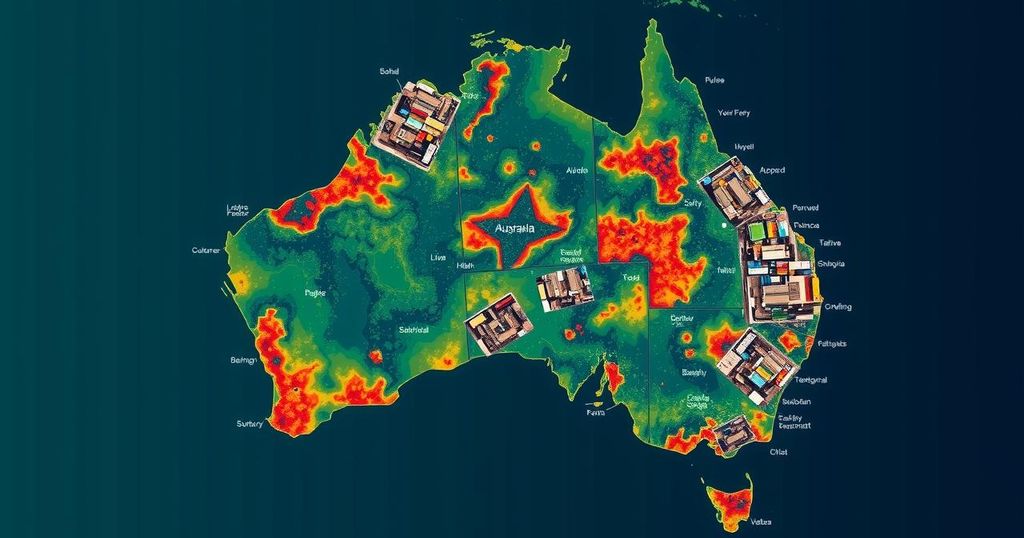The re-election of Donald Trump poses significant challenges for Australia regarding climate and trade policies, as his administration advocates for protectionism and withdrawal from international agreements. This situation necessitates a strong commitment to open trade and proactive collaboration with global partners to mitigate damages and maintain progress in climate efforts. By avoiding retaliatory measures and reinforcing international cooperation, Australia can effectively navigate these turbulent times.
The international economic framework that underpinned Australia’s late 20th-century reforms faces formidable challenges in the 21st century, particularly with the re-election of Donald Trump as President of the United States. His administration’s agenda threatens free trade and climate agreements by promoting protectionism, hefty tax cuts, and a combative stance towards international cooperation. As the world economy grapples with potential turmoil, Australia stands at a critical juncture. Australia, an advanced economy that significantly depends on open multilateral trade, risks experiencing pronounced adverse effects due to these developments. Increased global interest rates and inflation, stemming from U.S. fiscal policies, intensify local economic pressures. Furthermore, Australia is especially vulnerable to the ramifications of climate change, being one of the nations most affected by global warming. It is crucial, therefore, for Australia to reinforce its commitments to open trade and robust fiscal policies to counterbalance the protectionist tendencies emanating from the U.S. The indirect consequences of a potential U.S.-China trade conflict will predominantly manifest through a slowdown in growth across Asia, which could further deteriorate Australia’s trade landscape. However, Australia can mitigate these impacts by collaborating with other trading partners to liberalize trade further, thereby offsetting losses incurred due to U.S. protectionism. The global trading community has an interest in preserving existing multilateral frameworks that promote open trade, which is invaluable for restoring U.S. participation in future agreements. In terms of climate change, minimizing the fallout from the U.S. retreat requires concerted international efforts to maintain progress in emissions reductions and cooperative frameworks. Assuredly, there may still be ongoing state-level initiatives within the U.S. that could contribute positively to emissions reductions despite the federal stance. Furthermore, with countries like China potentially advancing their climate policies amidst U.S. withdrawal, there remains a viable pathway for collective action against climate change. Maintaining steadfast policies in trade and climate, while avoiding retaliatory actions against the U.S., presents a strategy that could foster the eventual return of U.S. influence on the global stage. This will require a unified approach from Australia and its partners to not only weather the current storm but also seize opportunities for collaborative advancement.
The political landscape of international trade and climate policy has shifted dramatically with the re-election of Donald Trump as U.S. President. His administration’s focus on protectionist policies, withdrawal from collaborative global frameworks, and disregard for climate matters threaten to destabilize established economic relations, prominently affecting nations such as Australia that rely on open trade. Understanding the implications of these changes is essential for formulating effective responses to safeguard economic interests and climate initiatives on a global scale.
In conclusion, the challenges posed by the U.S. under Donald Trump’s presidency have far-reaching implications for Australia, particularly in trade and climate policy. It is imperative for Australia to reinforce its commitment to free trade and collaborate with international partners to offset potential losses from U.S. protectionism. By maintaining a steadfast approach and promoting cooperative efforts in combating climate change, Australia and its allies can navigate the current geopolitical landscape effectively.
Original Source: www.theguardian.com






